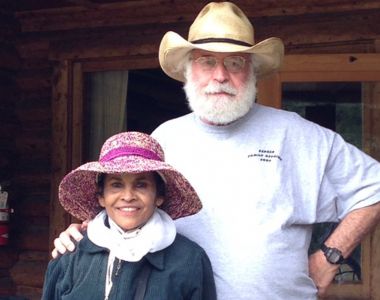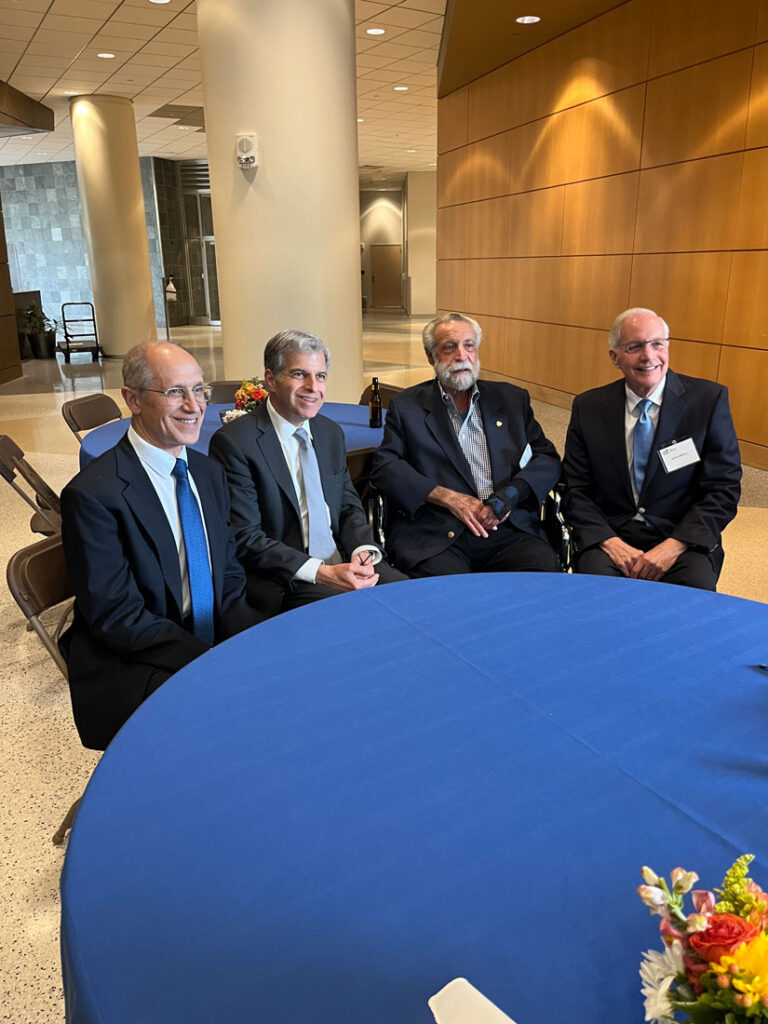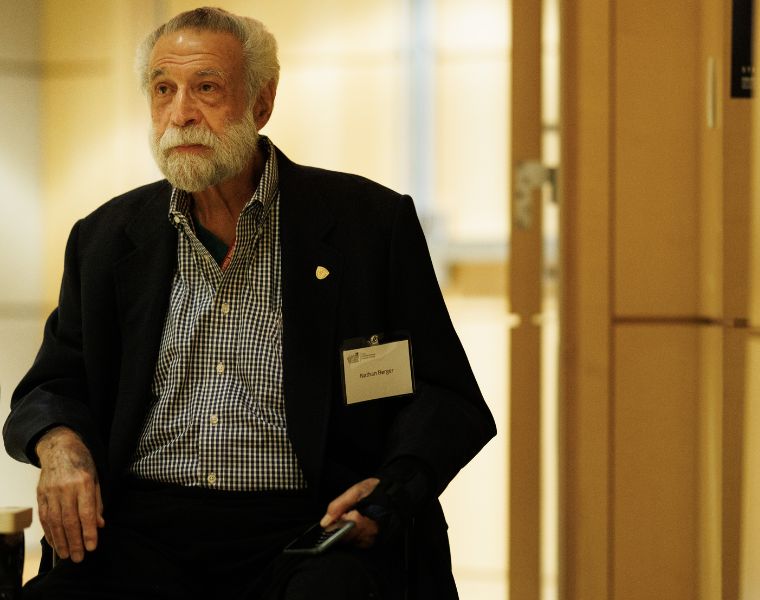
Nathan Berger arrived in Cleveland in 1983 with a vision: creating an oncology/hematology training program to position Case Western Reserve University School of Medicine as a leader in the burgeoning field of cancer care.
The program he developed went on to become a National Cancer Institute-designated consortium cancer center comprising 400 investigators and 6,000 healthcare professionals from Case Western Reserve, Cleveland Clinic and University Hospitals that supports more than 15,000 new cancer cases annually.
This week, the university and broader Cleveland community are mourning the loss of Berger, a Distinguished University Professor, former School of Medicine dean and founding director of what is now the Case Comprehensive Cancer Center. He died Saturday, June 15, at the age of 83.

Across more than 40 years at Case Western Reserve, Berger produced groundbreaking biomedical research into cancer development and its associated risk factors, co-directed the Gastrointestinal Specialized Program of Research Excellence (GI SPORE), and served as a mentor, teacher, and role model. He was a nationally renowned authority on hematology and oncology, while also building a legacy locally as an advocate for students from backgrounds typically underrepresented in science and medicine.
When he first arrived at Case Western Reserve, Berger’s first recruit to the new oncology/hematology program was Stanton Gerson. Over the years, Berger served as a mentor to Gerson (and many others), and their careers ended up taking similar trajectories, with both leading the cancer center and eventually becoming dean of the School of Medicine, a position Berger held from 1995 to 2002. During that time, Berger increased commitment to scholarly research and worked to expand diversity among medical students.
After his time as dean, Berger became the inaugural director of the Case Center for Science, Health and Society and started Scientific Enrichment Opportunity (SEO) to get high school students—especially those from the inner city—interested in science. Seven years ago, with grant funding from the National Institutes of Health, he created the high school program Youth Enjoy Science (YES). Together, these summer programs attract 80 to 100 students annually from across Greater Cleveland. More than 90% of the students who take part go on to attend college.
“Dr. Berger’s YES summer program has profoundly impacted the education of students from our underrepresented community in cancer medicine,” Case Comprehensive Cancer Center Director Gary Schwartz wrote in an email. “It is just one part of his legacy as our first Case CCC director.”
Throughout his career, Berger used his skills as a grant writer, inventor, advisor and mentor to help countless individuals pursue academic and research-oriented careers. He was known for his ability to recruit top talent—many of whom, like Gerson, remained at CWRU for decades. Among his first recruits: Sanford Markowitz, the Ingalls Professor of Cancer Genetics, who is now the principal investigator on the GI SPORE that Berger created.
“Nate was the quintessential recruiter,” said Hilliard Lazarus, professor emeritus of medicine. “He was a master at ‘collecting’ many top-of-the-line scientists and clinicians.”
Berger also was committed to their development, showing a strong dedication to leadership and mentorship to people at all aspects of their career—including Lazarus.
“He always prioritized helping others first,” Lazarus said. “Nate was freely giving of his time to provide sage guidance and advice to anyone who asked for assistance; he was my go-to-guy.”
Berger was a well-regarded hematologist at University Hospitals, which recognized his commitment with the creation of the Berger Service in Medicine, a Department of Medicine in-patient service.
Berger’s impact across Case Western Reserve and Cleveland is indelible—as evidenced by his receipt of the school’s Lifetime Achievement Award in 2022—as is his influence on so many scientists and physicians, including Gerson.
In an email to the School of Medicine community on Monday, Dean Gerson said Berger had, “arguably, had the greatest impact on medicine in Cleveland of anyone.”
Gerson also shared the definition of a sage: “someone who is a wise figure, often an older individual, who possesses insight or understanding beyond that of ordinary people,” he wrote. “Sages serve as guardians of special knowledge, helpers, or advisers who exemplify wisdom, virtue, and goodness.
“That,” Gerson continued, “describes Nate to a T.”
Berger is survived by his wife, Sosamma J. Berger; children, Joshua (Lisa) Berger, Ravi Berger (April Sanfilippo) and Sarina B. (Sammy) Elmariah; grandchildren, Julian Berger, Bruce Berger, Kai and Quinn Sanfilippo, Zayne and Aydin Elmariah; and brother Melvin (Jane Hayler) Berger. He is preceded in death by a brother, Mark Berger.
Funeral services will be held Tuesday, June 18, at 2 p.m. at Berkowitz-Kumin-Bookatz Memorial Chapel (1985 S. Taylor Road, Cleveland Heights).
In lieu of flowers, the family has requested contributions to the NATHAN A. BERGER, MD, SCIENTIFIC ENRICHMENT AND OPPORTUNITY PROGRAM ENDOWMENT FUND at Case Western Reserve School of Medicine (visit giving.case.edu/med, choose ‘Other’ as the Designation and fill in the fund name, or contact Colleen Sporar at colleen.sporar@case.edu), or the Greater Cleveland Food Bank.
Students who would like support during this time are encouraged to contact University Health and Counseling Services at 216.368.5872. This line is staffed by a counselor 24 hours a day, seven days a week. Faculty and staff can access counseling at any time by calling IMPACT Solutions at 1.800.227.6007.


